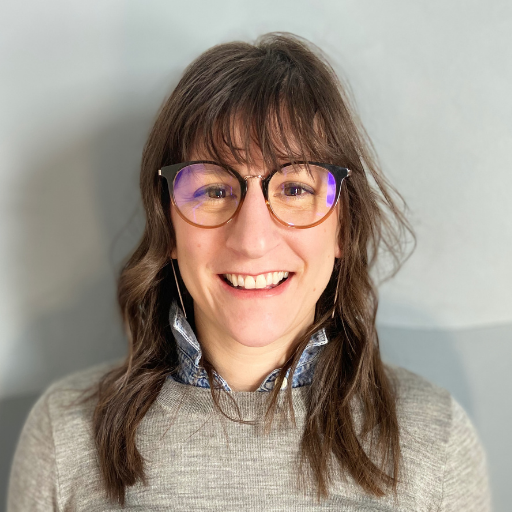|
Over the past year or so, I've been grappling with a shift from a medical model of trauma (you know, where teachers see images of brain scans and learn how trauma is so damaging) to a systems and assets view of trauma. In the new view, centering the brain-based model is super harmful. Even so, I struggled to dislodge the "child is damaged" paradigm from my mind. One pivotal moment in my journey of understanding came when I posted a raw and honest confession on Instagram. Keep reading to learn what happened and how you can embrace discomfort and critical conversations too!
My disclosure and the response
In the Instagram post where I bared my soul to share with my supportive (yet critical) community, the main image read: "Full disclosure: I'm struggling to decenter a brain-based view of trauma. Here's why." Please view the post for the full caption!
The response was almost instant. The post definitely didn't go viral, but some trauma scholars in my IG community shared their understanding and how they decenter a brain-based view of trauma...and why. Here are some of the most impactful comments (in no particular order): @revolvelearning (J. Reed) said, "Once educators are aware of how the brain works in escalated states because of the unique context of each child...they sometimes fall into a 'poor little brain,' mentality with limited beliefs about their students and fear to build the relationships necessary to see through those moments. There are a ton of steps and support teachers need after the revelation of brain science." @unconditionallearning (Alex Shevrin Venet) said, "It's definitely a both/and! The brain science is really important to know about AND when it's all we focus on, we lose so much and risk pathologizing kids. I also wonder what you mean by "works" - like, yes, knowing the brain stuff "works" in the sense that it allows adults to help regulate, etc but you also don't actually need to read Perry or understand the technical stuff to do that. There's a human centered way of being that predates the ability to do a brain scan. It's complex for sure. Why I always come back to both/and!" @themindseed (Ali Rutger) said: "I’ve been thinking of this too. We can’t decontextualize trauma from systems, it does a disservice and ignores so many sources of injury." And @hoobubz (Dr. Steph Cariaga) said: "Appreciate your processing here. The use of the science becomes problematic when regulation strategies are used to “calm” the student down instead of helping marginalized students understand and have compassion for many coping strategies that have helped them survive a violent world. Sometimes we need to escalate and we need to develop our culture’s larger capacity for big feelings. So I guess the questions are: we’re teaching students to regulate for what? for whom? And possibly at what cost? How are we helping young people understand the conditions that cause and disproportionately reinforce trauma, while giving them tools to be with more choice, consciousness, and agency?" How these responses shifted my thinking
So, the thing I keep coming back to through my paradigm shift is the fact that I have a very hard time holding two things in my head at once. As @unconditionallearning said, it's a both/and, meaning it helps to understand how trauma impacts self regulation and learning AND we need to understand that there are ways of working with trauma-affected students that have nothing to do with brain science and everything to do with humanizing relationships and equity-centered thinking. As I continue to shift my paradigm, I am understanding the shift as less of a move from one thing (brain-focused idea) to another (systems and assets based view of trauma) and more of a flexible and nebulous combination of the two.
Another comment that helped so much to conceptualize the necessity to decenter brain-based thinking was @hoobubz comment. She wrote an amazing article recently on the inequitable and damaging nature of SEL. Her comment resonated with that article, focusing on using critical pedagogy and provide students with tools to be fully aware of their situations. She has pushed me to look critically at notions of "compliance" in education, seeing it as oppressive. My new understanding
With the comments from this post in mind as well as a ton of reading I've done on equity-centered trauma-informed practices, my new understanding balances:
We are all vulnerable in this world, students may be more vulnerable than teachers if they lack privileges associated with being white and/or middle or upper middle class. We must stop pathologizing students by painting them as in need of healing in ways that we assume we are not. Look at the systems for the roots of the problems, not the individual students. More than anything, I look forward to returning to the classroom next year for my dissertation. I want to put this new understanding to the test with real students and real teachers! Stay tuned for more of my learning and what happens during my dissertation! For now, sign up for my weekly blog post!
3 Comments
6/20/2023 09:43:49 am
<strong><a href="https://www.supplementguidesg.net">See Informative Source For Healthcare</a></strong> || <a href="https://www.supplementguidesg.net">https://www.supplementguidesg.net</a>
Reply
6/20/2023 09:47:49 am
<a href="https://www.authoritynutritionhelp.com">See Informative Source HCG drops brand</a> [url=https://www.authoritynutritionhelp.com]Visit authoritynutritionhelp[/url]
Reply
Anita Wilke
12/5/2023 07:32:02 pm
Hi!
Reply
Leave a Reply. |
AuthorMy name is Erin E. Silcox. I'm working on my Ph.D. in Literacy Education, focusing on the intersection of trauma and literacy. I want to deepen our base of knowledge about trauma-informed practices in schools and help teachers apply findings right now. Archives
April 2021
Categories |


 RSS Feed
RSS Feed